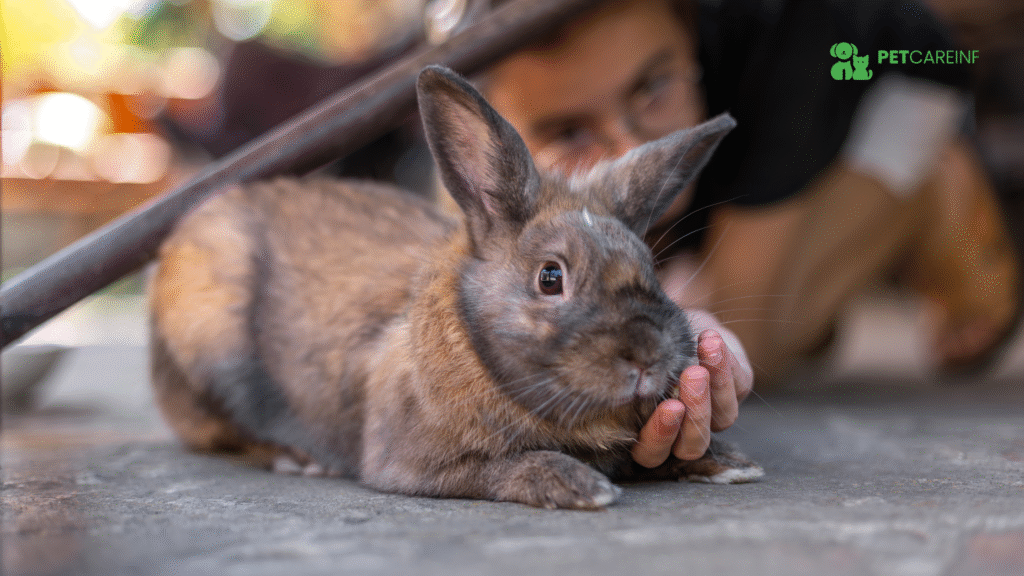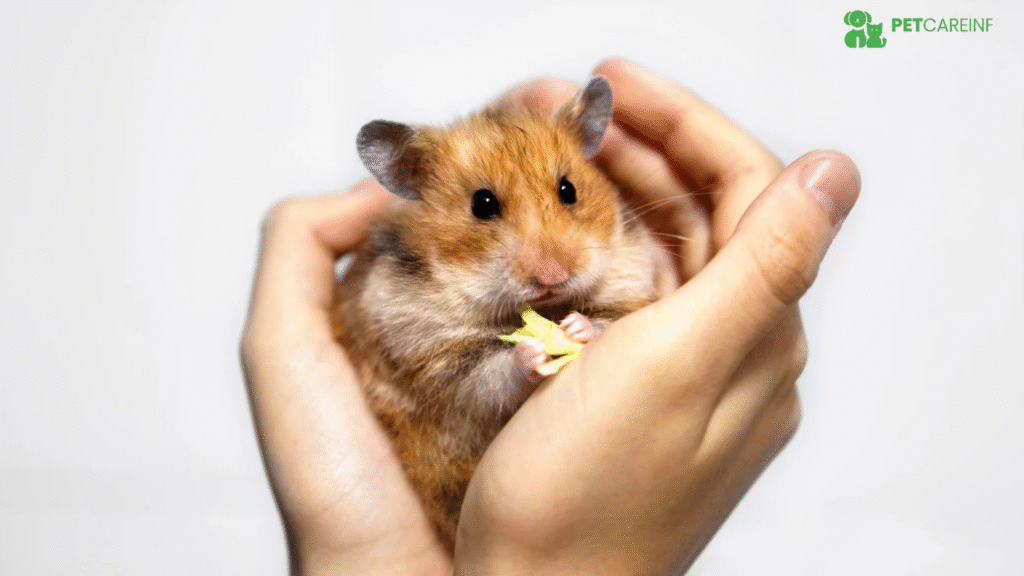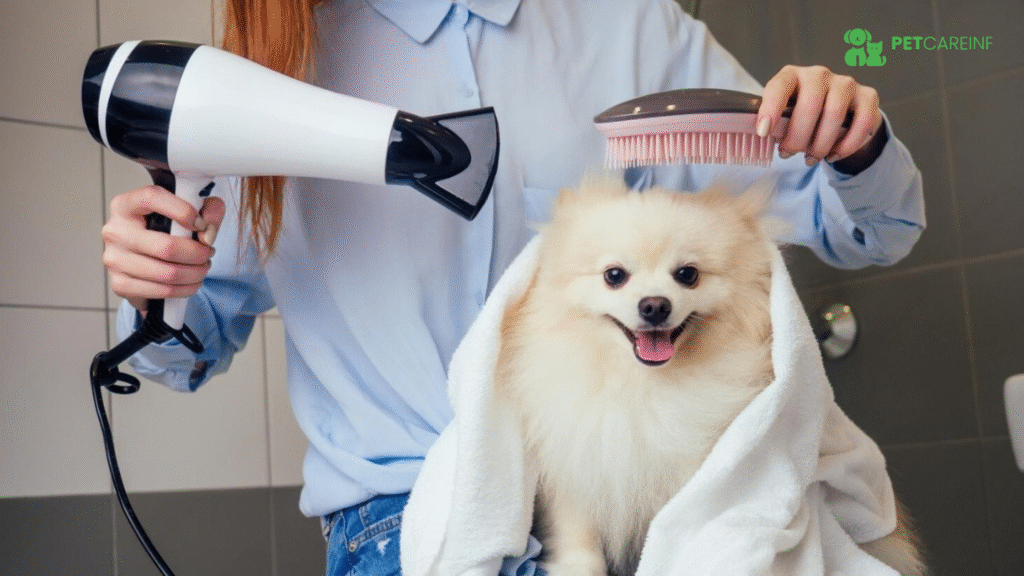Table of Contents
Do guinea pigs bite? Yes, they sometimes do, and many new owners get worried when it happens. Guinea pigs are sweet and gentle pets, but just like any animal, they may nip if something bothers them. The good part is their bites are usually not dangerous. Let’s break down why guinea pigs bite, if it hurts, and how you can stop it.
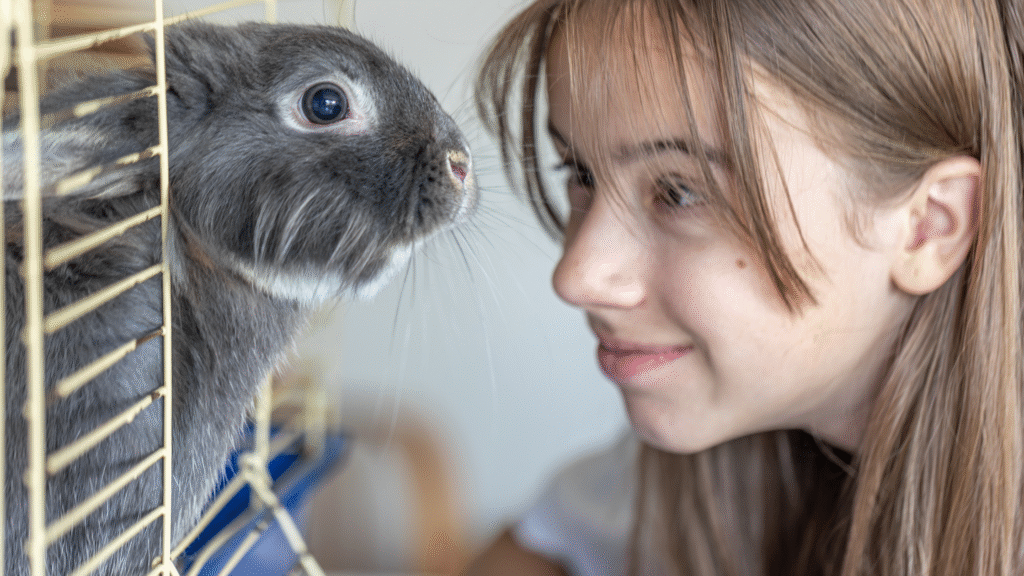

Why Do Guinea Pigs Bite
Guinea pigs don’t usually bite because they are mean. A nip is just their way of saying, “I don’t like this, leave me alone.” Most of the time it comes from fear, pain, or when they are upset.
Fear and Stress
These animals get scared very quickly. A sudden hand in the cage, a child running by, or a loud sound can make them nervous. When they feel trapped or surprised, they may nip to protect themselves.
Pain or Discomfort
If a guinea pig has sore spots, cuts, or skin problems, even soft touches can hurt. In that case, they bite to stop the pain. Signs like bald areas, scratching all the time, or unhappy squeaks mean you should take them to a vet.
Hunger or Thirst
Sometimes a guinea pig bites a finger by mistake. If your hand smells like food, they may think it’s a snack. A light nibble can also be a way of saying they need fresh veggies or water.
Guarding Their Space
Some guinea pigs don’t like others getting too close to their cage or favorite corner. If another guinea pig or even your hand gets near, they might nip as a warning. This is common when more than one piggy is living in the same cage.
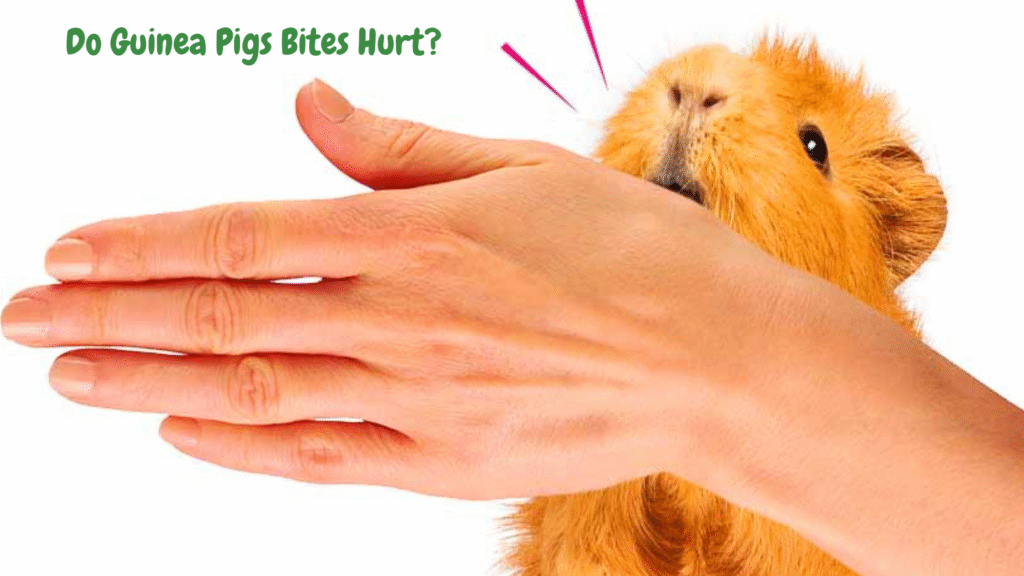

Do Guinea Pigs Bites Hurt?
Yes, guinea pig bites can hurt, but not too badly. A light nibble often feels like a soft pinch, while a stronger bite feels sharper, like a tiny scratch on the skin.
How Painful Is a Bite?
Guinea pigs have small teeth and weaker jaws than bigger animals. Because of this, the pain does not last long. A nibble may not even leave a mark, but a firm bite can cause a red spot or a thin line on the skin.
Do Bites Cause Injury?
Most bites are mild and heal in a short time. Small marks usually go away within a day or two. Only in rare cases, a deeper bite may draw a little blood. Unlike dogs or cats, guinea pigs cannot break the skin deeply.
How to Treat a Bite
If the bite is strong enough to break the skin, wash the area with soap and warm water. Dry it and put a small amount of antiseptic cream on it to stop germs. If you notice swelling, pus, or the skin turning hot, it is best to see a doctor.
How to Prevent Biting
Give your guinea pig things to chew, like hay, wooden sticks, or safe chew toys. This keeps their teeth busy and helps stop unwanted nips. Also, handle them gently and avoid sudden moves so they feel calm around you.
How to Stop Guinea Pigs from Biting
Guinea pigs don’t bite for no reason. Most times they are just scared, annoyed, or don’t know what’s going on. You can cut down biting if you handle them kindly, give them space, and keep them busy with food and things to chew.
Handle Them Gently
Don’t grab them fast. Use both hands, one under the chest and one under the back. Hold them close so they don’t feel like they will drop. Quick grabs scare them, and that’s when they nip.
Helpful product: A soft fleece blanket on your lap helps them relax and stay still.
Watch for Warning Signs
They give little signs before they bite. Teeth clicking, wriggling, pushing you away—these mean “enough.” If you see this, put them back in the cage. Forcing them only makes them bite harder next time.
Helpful product: A small open play area is good for when they don’t want to be held.
Create a Safe Environment
A noisy room, dirty cage, or too many guinea pigs in one place makes them stressed. Stress turns into biting. Keep the cage clean, quiet, and roomy so they feel safe.
Helpful product: A large cage with soft bedding and a hiding spot works best.
Provide Enough Food and Toys
Guinea pigs chew all the time. If there’s nothing to chew, they may test your finger instead. Give them hay, water, fresh veggies, and toys like wooden sticks or tunnels. This keeps their teeth busy and their mood happy.
Helpful product: Timothy hay bundles, chew toys, and tunnels are simple and cheap.
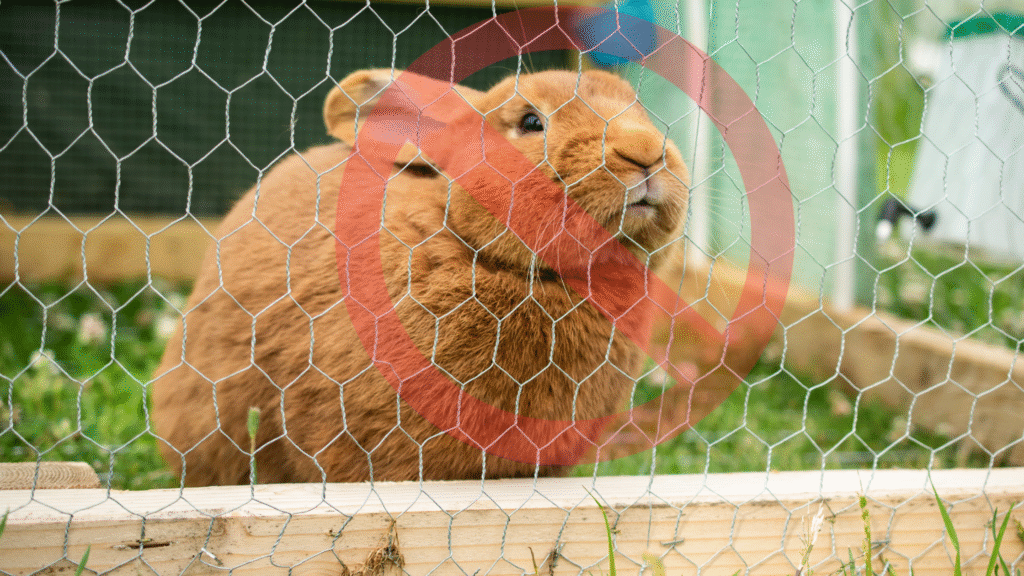

What to Do If a Guinea Pig Bites You
Even the nicest guinea pig might give you a nip. It can happen out of nowhere. Don’t freak out, it’s not the end of the world. Just handle it step by step.
- Stay Calm: First thing — don’t yank your hand back. If you pull too fast, you might tear the skin and scare the pig even more. Just pause, then move your hand away slowly.
- Clean the Bite: Go wash it. Warm water, a bit of plain soap, that’s enough. Spend a minute rubbing it clean so no dirt or germs stay in.
- Put Something on It: Grab some antiseptic cream or liquid if you’ve got it. Dab a little on the bite. It helps the spot heal and keeps it from getting nasty.
- Cover If It’s Open: If you see blood or a small cut, stick on a bandage. Doesn’t have to be fancy — just enough to keep dust out until it closes.
- When to See a Doctor: Most bites are tiny. But if it swells up, gets red, or looks worse after a day, go to the doctor. Better safe than sorry.
Helpful tip: Keep a cheap first-aid kit near your guinea pig’s cage. Soap, cream, a few plasters, that’s all you need. Saves you running around when it happens.
Tips for Preventing Guinea Pig Bites
Guinea pigs bite mostly when they feel scared or annoyed. You can stop a lot of it if you make them feel safe and treat them gently.
- Spend Time Daily: Sit by them. Talk soft. Let them sniff your hand first. Don’t rush. After some days they get used to you and relax.
- Keep the Cage Right: If the cage smells bad or is too small, they get angry. Change the bedding often. Give them a box or tunnel to hide. Quiet corner of the house works best.
- Don’t Shock Them: No fast grabs. No loud claps near the cage. Move slow. Use both hands when you lift them. They need to feel safe or they will nip.
- Feed From Your Hand: Give a carrot slice or lettuce from your palm. At first they may nibble your finger, but they learn fast. Hand = food, not danger.
- Know Their Nature: Some pigs hide a lot. Some are bold. Watch yours. Respect what they like. If they want space, give space. If they want play, let them.
Extra tip: Always keep hay, chew sticks, and toys in the cage. If their mouth is busy, your fingers are safe.
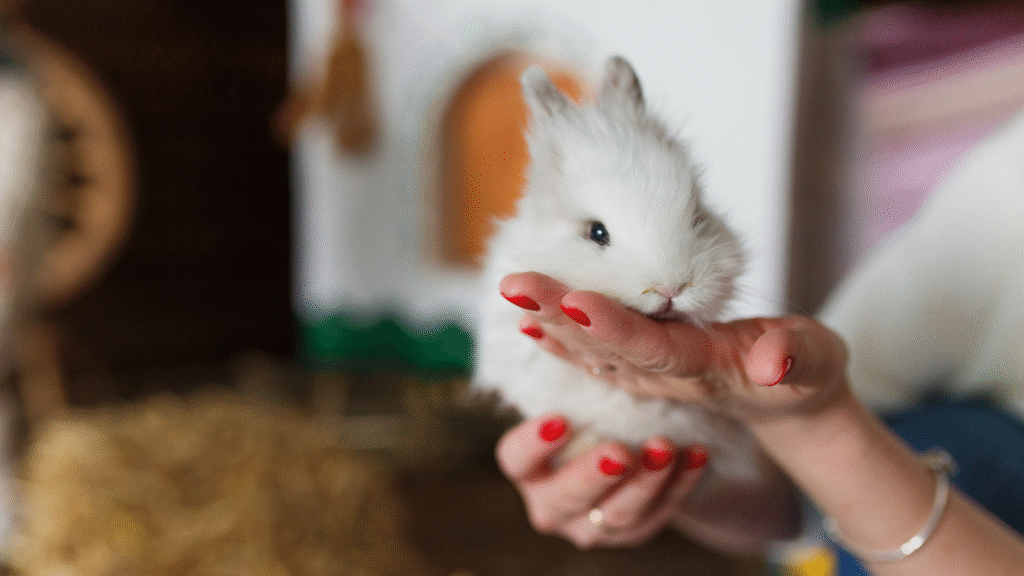

Frequently Asked Questions
Do guinea pigs bites hurt?
Yes, they hurt a little. Most times it feels like a quick pinch or a scratch. A light nip may not leave a mark, but a strong bite can make the skin red or even bleed a bit.
Is a guinea pig bite dangerous?
Most bites are harmless. A shallow bite heals fast on its own. If the bite is deep, wash it well with soap and warm water, then use antiseptic. Go to a doctor only if the skin swells, looks red, or does not heal.
Do guinea pigs smell?
They do not smell bad if the cage is cleaned often. Smell usually comes from wet bedding, old food, or urine spots left too long. Change bedding every few days and remove leftover food to keep the cage fresh.
Helpful product: Paper-based bedding and a cage liner reduce bad smell.
Do guinea pigs bite strangers?
Yes, sometimes. They get nervous around people they don’t know. If a stranger grabs them fast, they may nip. It is better to let new people sit quietly, talk softly, and offer small treats on an open hand.
Does a guinea pig bite cause rabies?
No, guinea pigs cannot spread rabies. Their bite can break the skin, but rabies is not carried by these pets. The only risk is a small infection if the wound is not cleaned properly.
Do guinea pigs bite humans?
Yes, but only when they are scared, hungry, or upset. Gentle handling, enough hay, and safe chew toys usually stop biting. A calm and well-fed guinea pig rarely bites people.
Helpful product: Wooden chew sticks and hay racks keep their teeth busy and lower biting.
Final Thoughts on Do Guinea Pigs Bite
Yes, guinea pigs bite sometimes, but it’s not because they hate you. It’s usually their way of saying “stop, I don’t like that.” They don’t have big sharp teeth like dogs, so it’s more of a warning than real harm.
If you hold them gently, feed them on time, and give them space when they look upset, most won’t bite at all. A clean cage, fresh hay, and a few chew toys also make a big difference.
Over time, they get used to your hands and your voice. Then the little nips turn into soft sniffs and licks. That’s when you know your guinea pig trusts you.

